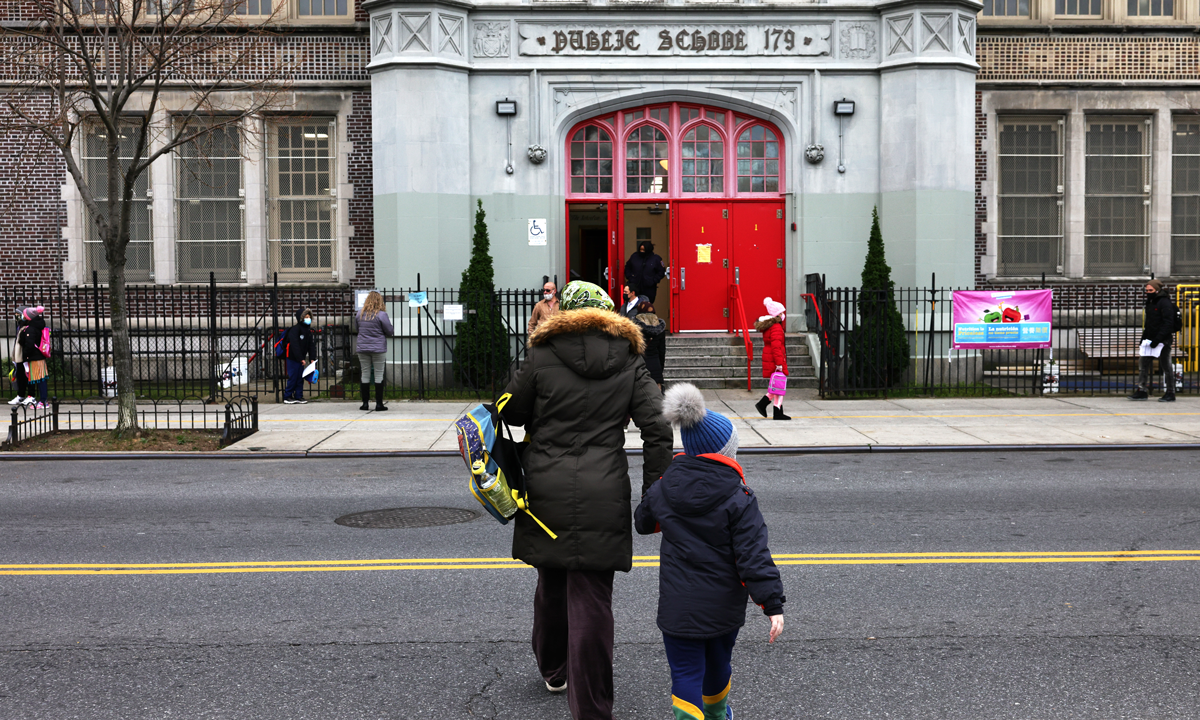My Humbling Education in What Families Really Want from their Kids’ Schools
Adams: Working with parents on school admissions, it was clear: Transportation, safety, afterschool, special needs & academics were key, not diversity

Get stories like these delivered straight to your inbox. Sign up for The 74 Newsletter
People who make education policy and determine where to allocate funding claim they know what families want from public schools. This past admissions season in New York City, I had the privilege of working with several community organizations to help parents of students in grades pre-K through high school apply to traditional public, public charter, religious and private schools. What I heard from them did not necessarily line up with what I’d been assured families were most concerned about.
The majority of families I worked with were low-income and of color. They lived in northern Manhattan or the South Bronx, and roughly half did not speak English as their first language.
These are exactly the families whose interests elected officials, community organizers and pundits claim to be looking out for in the tussle over education policy. I have been writing for over a decade about how to improve NYC schools, especially for those in underserved communities. The bulk of my opinions were formed based on research released by think tanks, universities and pollsters, and by talking with families across racial and socio-economic boundaries.
This past fall, winter and spring, however, was the first time I consulted with a critical mass of families who demographically were an exact match for the NYC school system, which is 72% economically disadvantaged, 21% students with disabilities, 14% English learners, 41% percent Hispanic and 24% Black. In the process, I received a strong education of my own about what really matters to families, versus what I’d been led to believe matters to them. Below are the top five issues that came up repeatedly, in order of importance:
- Transportation: Before they wanted to know anything about a school, parents wanted to know how their children would get there. They wanted to know if the school offered busing. Many stressed that they did not want their children going to school in their own neighborhoods, and they did not want them taking public transportation. (I have written before about the importance of easily available transportation, and how NYC’s top gifted-and-talented schools say they want diversity but do little to help students physically get there.)
- Safety: This was the No. 1 issue cited by parents about why they do not want their kids attending the schools in their neighborhoods. It went hand in hand with discipline and classroom management. Parents told me they would be willing to have their children attend school out of district, even out of borough — no matter the travel time — as long as it was safe and teachers knew how to prevent bullying. This is why they so desperately wanted busing to get them there.
- Afterschool: Since most of the parents I spoke to worked, they were not available to do midday pick-up. They wanted to know if the schools offered no-cost afterschool programs or care until the end of the business day.
- Special Needs: Matching the city statistics, about 20% of the families I spoke to had children with Individualized Education Programs. These plans called for either Integrated Co-Teaching classrooms — where students with disabilities are taught alongside typically developing peers by two teachers, to better accommodate all learners — or on-site services like speech, occupational or physical therapy. They wanted to know if the school really offered them or just paid lip service to it, like so many schools they’d already experienced.
- Academics: A school’s academics came up only after all of the above issues had been covered. What I heard over and over again from low-income, English learner and/or parents of color was: We want a school that doesn’t underestimate our child. We want a school that assumes our child can learn, despite their perceived disadvantages. One mother complained of a teacher who, after her son had read all the appropriate level books in the classroom library and wanted more challenging ones, told them, “I have nothing more to offer him.” A dad lamented that his daughter was told to help other children who were struggling if she had finished all her work, instead of being given learning materials appropriate to her level.
School diversity is repeatedly identified by self-proclaimed experts as the cause of all NYC school ills. It is invoked as the most important issue when it comes to choosing schools. So, after these parents finished explaining what they were looking for in a school, I would bring up school diversity and ask how important it was to them, to make sure I didn’t overlook anything.
Every single parent replied that while it would be nice for their child to not be “the only” one at their school, that wasn’t nearly as important as everything they’d already listed. When I asked a Spanish-speaking mother if she’d be interested in a dual-language program for her son, she looked at me as if I were a complete idiot and pointed out, “He already speaks Spanish. I want him to learn English.”
I have been writing for over a decade about how to improve NYC schools, especially for those in underserved communities. This past fall, winter and spring, I received a strong education about what really matters to families, versus what I had been led to believe matters to them. I learned that, before I spoke or wrote, I should first shut up and listen.
I can only advise my fellow pundits and community organizers, not to mention politicians who make policy and, especially, allocate funds, to do the same. And then to act accordingly.
Get stories like these delivered straight to your inbox. Sign up for The 74 Newsletter

;)
